In early September 2021, the Urban Redevelopment Authority (URA) and Land Transport Authority (LTA) awarded the pilot tender for more than 600 electric vehicle (EV) charging points in 200 public car parks to two consortiums – the first being ComfortDelGro Engineering and its partner ENGIE South East Asia, and another to Primech A&P with its partners Charge+, Sunseap Group and Oyika.
The former group will build 470 EV charging points in the Central, Eastern and Western regions of Singapore with the latter taking care of 150 points in the North and North-Eastern regions. With a national target to deploy 40,000 (public) and 20,000 (private) charging points by 2030 (part of the Singapore Green Plan), this will be the first of many tenders to come for sure.
This would definitely benefit homeowners living near these stations, particularly electric vehicle owners or those planning to buy electric vehicles (or Teslas). By 2030 and beyond, EV-ready lots in open-air, underground and multi-storey car parks will be a norm.
Currently, there are more than 1,800 charging points island-wide, with many charging station companies already in business – ranging from EV car-sharing firm BlueSG (now a subsidiary of French-based Bollore Group), Caltex, SP Group to Shell-Greenlots.
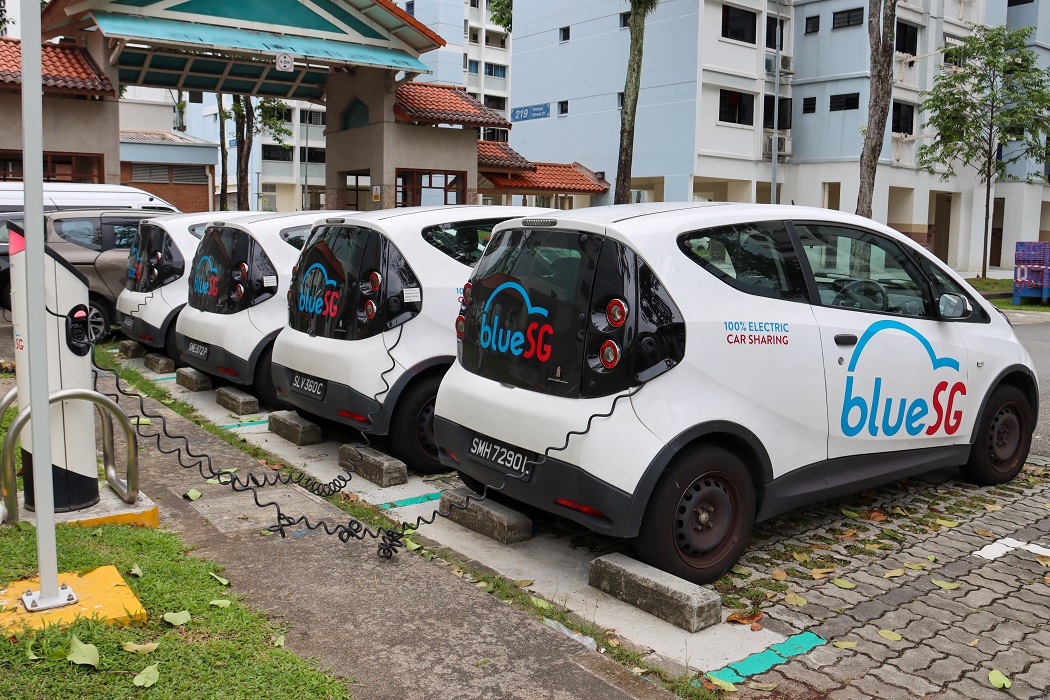
For the pilot tender, the 600+ EV charging points will be built at public housing and industrial estates, public parks, community centres and the CBD over the next 12 months. Here’s a general overview of where the first 600 charging points (and their respective stations) will be.
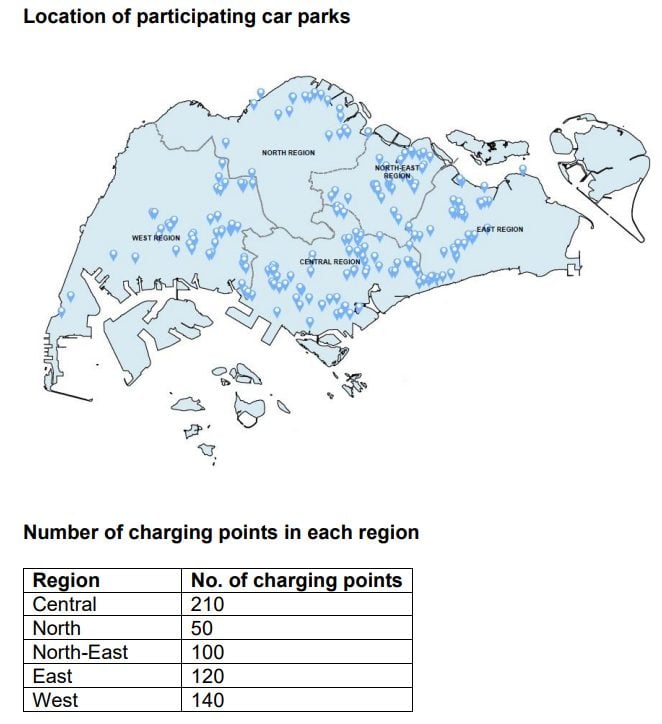
We also know that all HDB car parks at eight towns at least (Ang Mo Kio, Bedok, Choa Chu Kang, Jurong West, Punggol, Queenstown, Sembawang and the upcoming Tengah town), will have EV chargers by 2025. By 2030, every HDB town will be an EV-ready town.
Requirements include all car parks having sufficient electrical capacity to support EV slow charging for at least 15% of their lots and a minimum number of chargers in these lots. This requirement isn’t just for public housing, but new private buildings and existing buildings undergoing major redevelopment as well.
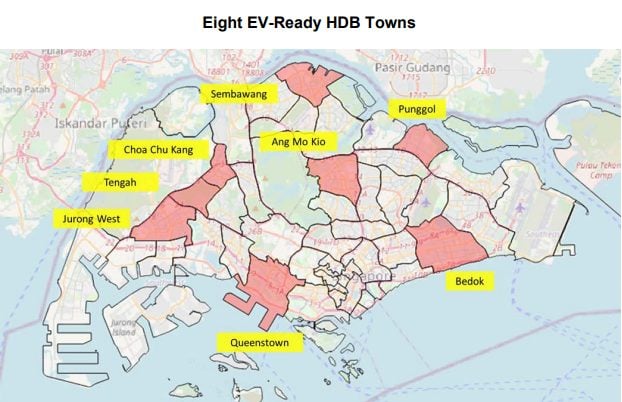
For non-landed private residences like condominiums, LTA is co-funding the EV Common Charger Grant (ECCG) to install 2,000 chargers till December 2023, subject to a cap. So if you’re either part of an MCST committee of a condominium or a resident who is pro-EV, you might want to review your existing EV lots and petition for an upgrade.
Note that these EV charging stations are based on the national public charging standards, which are Type 2 (AC) and CCS 2, or Combo 2 (DC). These chargers are mostly ‘slow chargers’ because they take anywhere between five hours to overnight to fully charge an EV. Fast, or high-powered chargers, would normally take about 30 minutes instead. Typically, a fully charged EV can travel anywhere between 200 to 490 kilometres (120 to 300 miles) on a full charge.
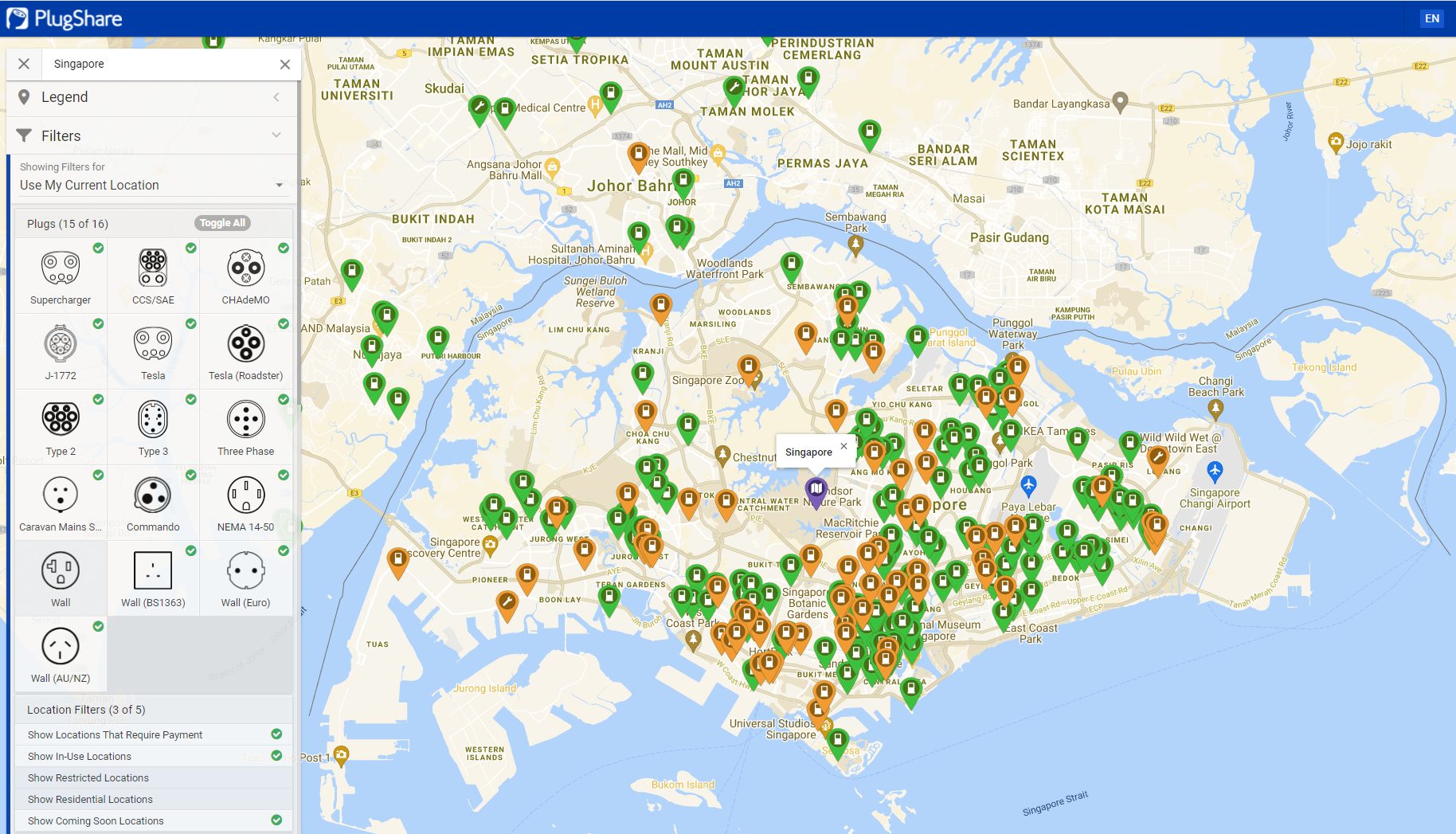
Still, the move comes as the world’s most popular electric vehicle – Tesla – starts selling its Model 3 in Singapore officially this year.
Already, as part of a sandbox application, the electric car maker founded by Elon Musk has set up three of its proprietary fast-charging points called Tesla SuperChargers on the 9th floor of Orchard Central car park. It plans to roll out its Tesla Wall Connector for homeowners in landed private garages and car parks in HDBs and condominiums, once approved.
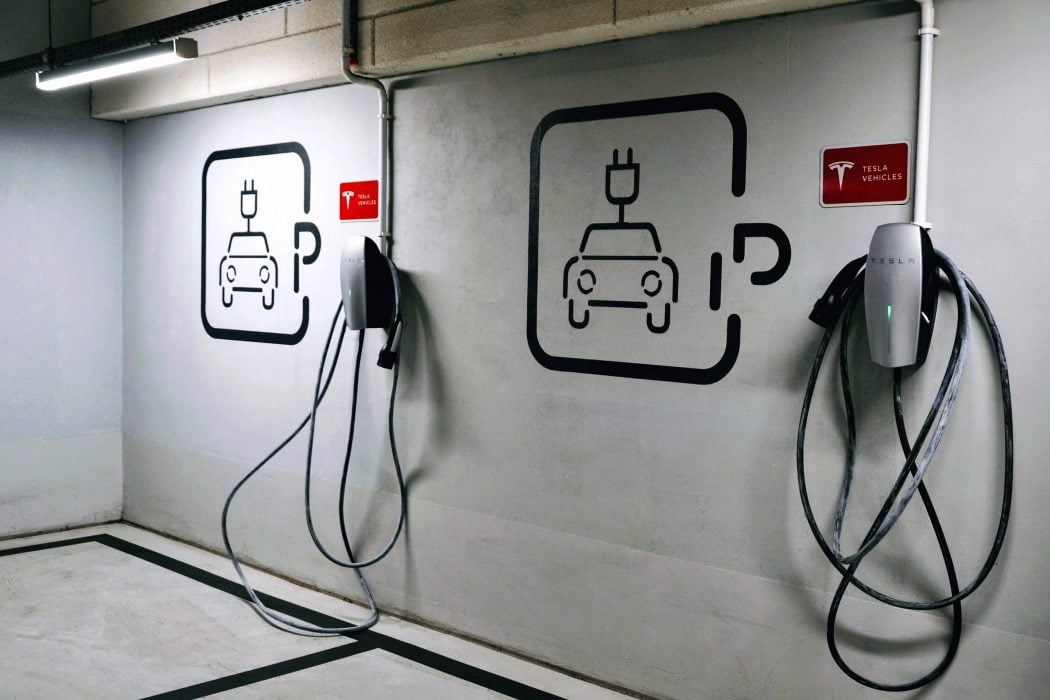
The SuperCharger is able to charge in 15 minutes for a 200-mile (322km) run. However, Tesla did say that its cars will be compatible with EV slow chargers as well. Besides Tesla’s SuperChargers, EV charging station companies like Caltex, Shell-Greenlots and SP Group also offer EV fast charging at some of their stations.
If you’re wondering, the government is not rolling out EV high-powered fast chargers because doing so would mean upgrading Singapore’s power substations and National Grid. That would slow down and delay the aggressive island-wide rollout of 60,000 by 2030.
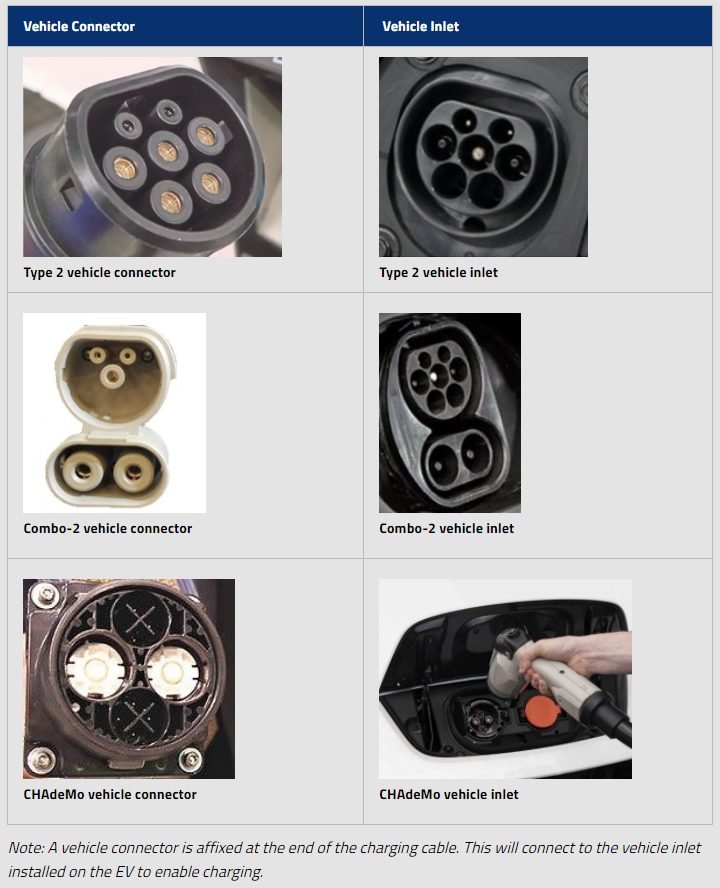
What the EV charging points would mean for property demand
As popular EVs like Tesla begin rolling out to the mainstream car-owning populace, prospective home/EV owners will be on the lookout for neighbourhoods where access to these charging points will be convenient and cost-effective. If they’re moving house (and potentially changing vehicles to a more energy- and cost-saving one), this might factor into their overall home-buying decision.
The government intends to gradually phase out fuel-based vehicles for more environmentally friendlier ones, so neighbourhoods with more EV charging stations will naturally be favoured.
Don’t forget, as these EV charging stations are publicly accessible, they would serve not just resident car owners within the neighbourhood but transient visitors, delivery drivers and heavy vehicle owners. The last thing you want as a homeowner is to drive home, only to realise your EV’s running out of electricity, all of your car park’s slow-charging stations are occupied and the nearest available lot is some distance away.
Furthermore, EV chargers may have some impact on car-less families or tenants, who occasionally choose to rent EVs during weekends or holidays. Landlords and property developers may consider marketing these as additional features to attract the ‘Tesla’ or EV crowd. It will definitely be a popular feature to have for serviced apartments and hotels.
In fact, there may come a day when a luxurious condominium comes with a 1-to-1 car park lot or private lot with EV fast-charging features. At some point, owning an EV lot and living in an environmentally sustainable, or smart eco-home, may catch on as a growing lifestyle and demographic.
Another knock-on effect from this is the benefit EV charging stations bring to commercial properties, shophouses or mixed-use developments with retail outlets. As car owners charge their EVs in the basement or curbside stations, they have minutes or hours to spare, leading to longer dwell time in nearby shops.
On the flip-side, and during this transitional phase, condominium residents and their MCST have big decisions to make on whether to ‘increase’ the number of EV-charging lots in their car park. Since the use of the car park is shared, some residents may not be so supportive of sharing the cost to set up and maintain these additional stations. Not all residents own or drive a car, let alone an EV.
In some way, the government’s EV Common Charger Grant (ECCG) helps alleviate this. It’s first-come, first-served up to 2,000 chargers though, so don’t wait too long, or the development’s attractiveness to future buyers and tenants might just lose its spark and value over time.
–
Are you intending to own an Electric Vehicle like a Tesla? How will the EV charging stations affect your future home-buying or home-commuting decisions? Let us know in the comments section below or on our Facebook post.
If you find this article helpful, 99.co recommends Singapore Green Plan 2030: How will it impact property developments and sustainability in our country? and Being An Eco-friendly Nation and Its Impact on Properties webinar.
Looking for a property? Find the home of your dreams today on Singapore’s fastest-growing property portal 99.co! If you would like to estimate the potential value of your property, check out 99.co’s Property Value Tool for free. Meanwhile, if you have an interesting property-related story to share with us, drop us a message here — and we’ll review it and get back to you.
The post How 60,000 electric vehicle (EV) charging points in car parks may affect property demand (and Tesla sales) appeared first on 99.co.


